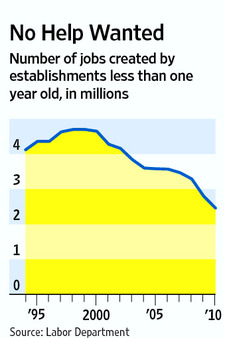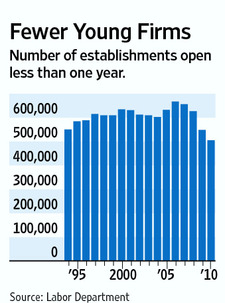From 2007 to 2010 Nina V. Fedoroff was the science and technology adviser to Secretary of State Hilary Clinton in the Obama administration. Fedoroff is currently a Professor of Biology at Penn State. The passages quoted below are from her courageous commentary in The New York Times op-ed section:
(p. A21) . . . even as the Obama administration says it wants to stimulate innovation by eliminating unnecessary regulations, the Environmental Protection Agency wants to require even more data on genetically modified crops, which have been improved using technology with great promise and a track record of safety. The process for approving these crops has become so costly and burdensome that it is choking off innovation.
Civilization depends on our expanding ability to produce food efficiently, which has markedly accelerated thanks to science and technology. The use of chemicals for fertilization and for pest and disease control, the induction of beneficial mutations in plants with chemicals or radiation to improve yields, and the mechanization of agriculture have all increased the amount of food that can be grown on each acre of land by as much as 10 times in the last 100 years.
These extraordinary increases must be doubled by 2050 if we are to continue to feed an expanding population. . . .
. . .
Myths about the dire effects of genetically modified foods on health and the environment abound, but they have not held up to scientific scrutiny. And, although many concerns have been expressed about the potential for unexpected consequences, the unexpected effects that have been observed so far have been benign. Contamination by carcinogenic fungal toxins, for example, is as much as 90 percent lower in insect-resistant genetically modified corn than in nonmodified corn. This is because the fungi that make the toxins follow insects boring into the plants. No insect holes, no fungi, no toxins.
. . .
Only big companies can muster the money necessary to navigate the regulatory thicket woven by the government’s three oversight agencies: the E.P.A., the Department of Agriculture and the Food and Drug Administration.
. . .
. . . the evidence is in. These crop modification methods are not dangerous. The European Union has spent more than $425 million studying the safety of genetically modified crops over the past 25 years. Its recent, lengthy report on the matter can be summarized in one sentence: Crop modification by molecular methods is no more dangerous than crop modification by other methods. Serious scientific bodies that have analyzed the issue, including the National Academy of Sciences and the British Royal Society, have come to the same conclusion.
For the full commentary, see:
NINA V. FEDOROFF. “Engineering Food for All.” The New York Times (Fri., August 19, 2011): A21.
(Note: ellipses added.)
(Note: the online version of the commentary was dated August 18, 2011.)




